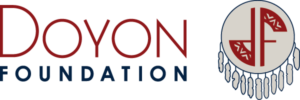Doyon Languages Education
The 2020 Interior Alaska Language Revitalization Survey showed most respondents want to improve their speaking ability with the goal of passing languages on to the next generation. The Doyon Languages Education project supports this goal by training a cohort of learner-teachers in language acquisition pedagogies to improve their fluency and pass on their language knowledge to their learners. The teacher cohort uses “pedagogies of hope” to focus on strength, community, and healing through language work.
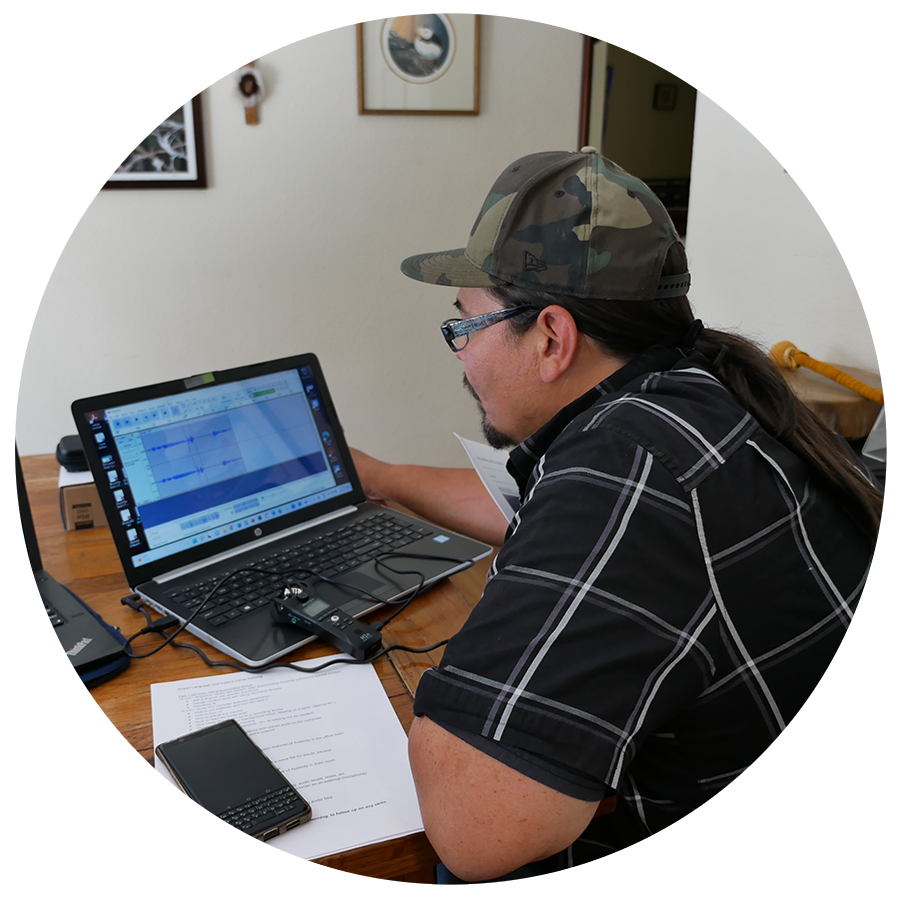
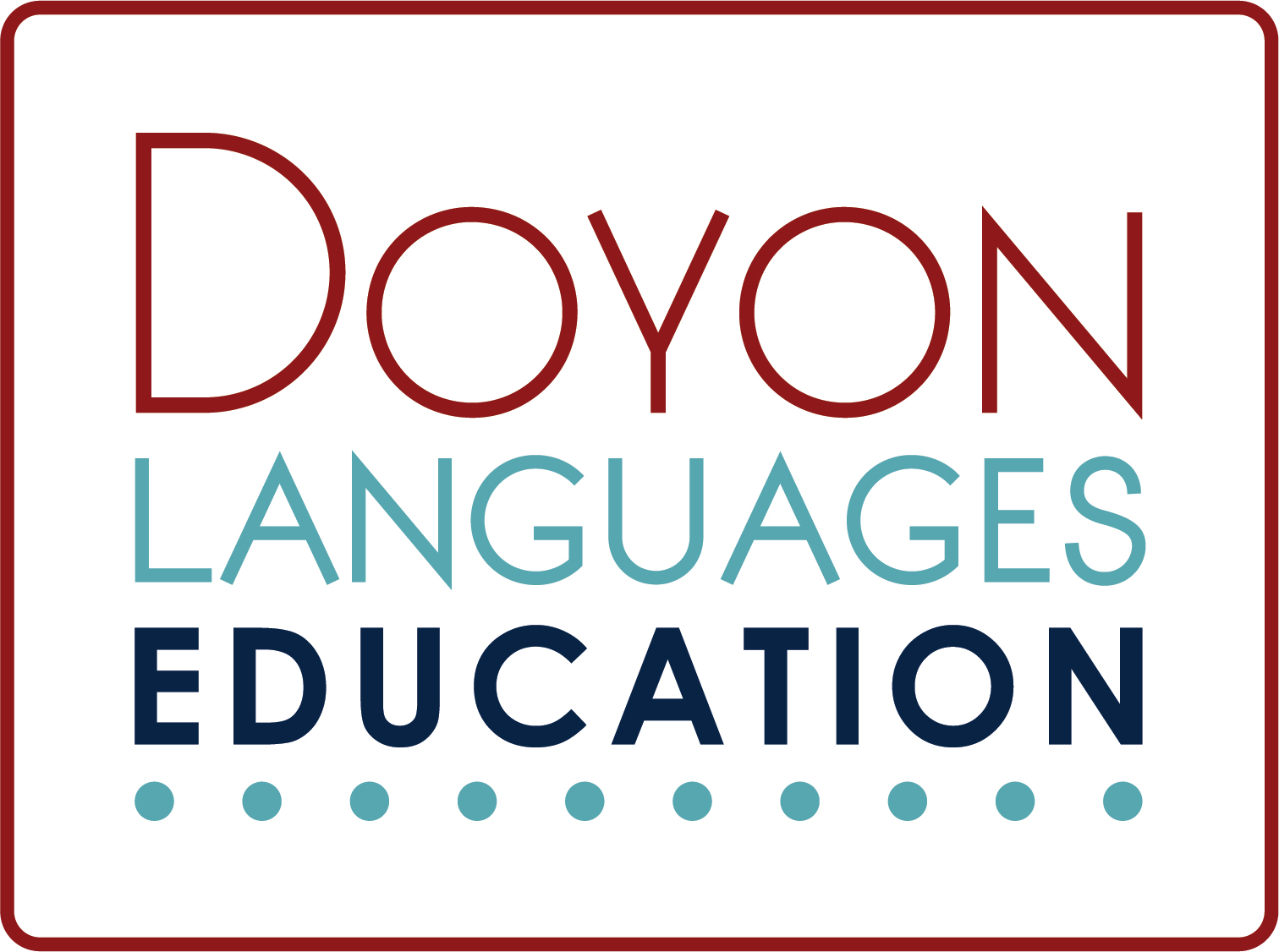
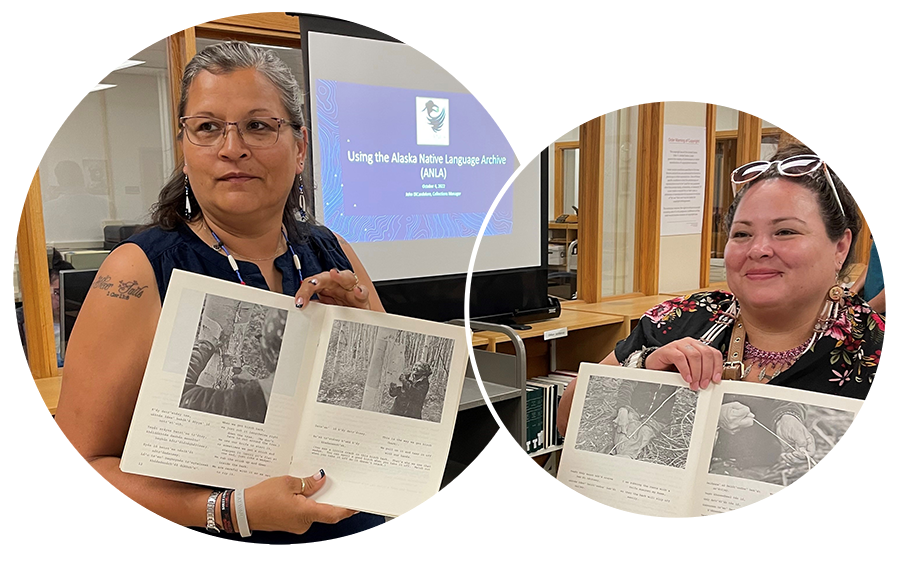
In 2022, Doyon Foundation received a three-year, $1.6 million grant from the Alaska Native Education Program (ANEP) to support language teacher development in Interior Alaska. Doyon Foundation is honored to partner with Effie Kokrine Charter School to pilot the Doyon Languages Education program.
The program’s teacher cohort will collaborate with fellow teachers, Elders and language experts to develop their skills and craft language lessons for students. They will then work with Effie Kokrine and other regional learning groups to implement effective language curriculum while utilizing Doyon Foundation’s language learning platform, Doyon Languages Online. With guidance from the teachers, students will learn their language(s) through a combination of digital and hands-on activities.
The Foundation will be recruiting language leaders who want to teach one of the Doyon region Native languages:
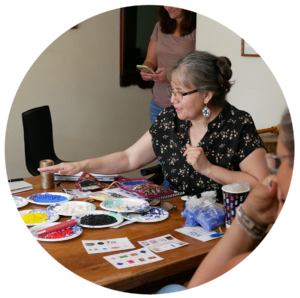 Benhti Kokhut’ana Kenaga’ (Lower Tanana)
Benhti Kokhut’ana Kenaga’ (Lower Tanana)- Deg Xinag
- Denaakk’e (Koyukon)
- Dihthaad Xt’een Iin Aanděeg’ (Tanacross)
- Dinak’i (Upper Kuskokwim)
- Dinjii Zhuh K’yaa (Gwich’in)
- Hän
- Holikachuk (Doogh Qinag)
- Iñupiaq
- Nee’aanèegn’ (Upper Tanana)
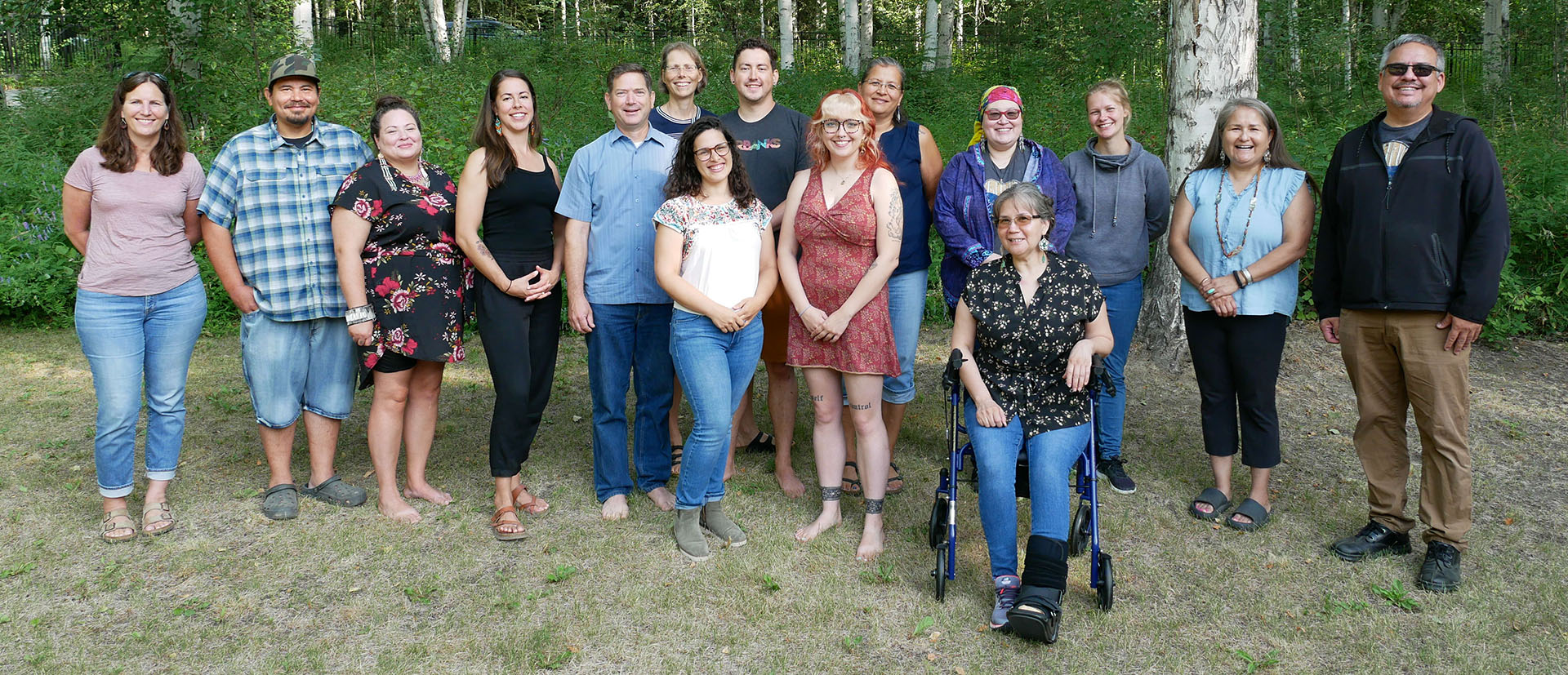
Doyon Languages Education FAQs
Can I apply if I am not a licensed teacher?
Yes. We consider a teacher to be anyone who is willing to step into a leadership role and guide others through their language learning journey.
Do I need to be fluent in my language to participate?
No. We understand that Doyon region languages are endangered and will not disqualify any applicants based on their language ability.
How will teachers interact with students?
We want to connect teachers with students as much as possible. Teachers who already lead a class (this could be a traditional classroom, community group, or even family) will work directly with their class. We are asking that each teacher facilitate at least one class with the Effie Kokrine language classroom each semester (in-person or virtually depending on the teacher’s location).
What is Doyon Languages Online?
Doyon Languages Online (DLO) is a free language program offering lessons for the Alaska Native languages in the Doyon region. DLO is accessible on all devices, including mobile devices by using the Transparent Language app.
Are you ready to begin your language journey? Register for a free DLO account.
Are the teachers paid?
Teachers are compensated at an hourly rate for weekly meetings and deliverables such as lesson planning and developing materials within the language learning software. Stipends provide coverage for relevant language courses, continuing education and professional development. Participants that qualify are reimbursed per diem for approved travel.
Teachers are not compensated for time spent in the classroom with their students, per restrictions of the grant and contractual obligations of the participants.
Will there be travel involved?
We host an in-person, three-day language culture camp in Fairbanks during the summer for our teacher cohort. This camp brings together Elders, language experts and other community leaders to support the teacher cohort and offer a more immersive language experience. Teachers that qualify are issued a per diem compensation and travel reimbursement.
What is the time commitment?
- We require teachers to attend weekly 90-minute meetings facilitated by a language consultant to reflect on their lessons, learn from one another, and build their confidence as language teachers.
- In the spring, we host a virtual study intensive. This is an eight-hour time commitment spread across two days.
- There is an in-person, three-day language culture camp that is hosted in Fairbanks during the summer. Teachers that qualify are issued a per diem compensation and travel reimbursement.
- There will be opportunities to attend other relevant conferences and events, though attendance will rarely be required.
- Teachers who take advantage of all optional opportunities will average around six hours per week.
- Teachers are not compensated for time spent in the classroom with their students. We made this decision based on the restrictions of the grant and any other contracts participants may have.
What languages can I learn through this program?
The Doyon Languages Education program is open to all 10 Doyon region languages:
- Benhti Kokhut’ana Kenaga’ (Lower Tanana)
- Deg Xinag
- Denaakk’e (Koyukon)
- Dihthaad Xt’een Iin Aanděeg’ (Tanacross)
- Dinak’i (Upper Kuskokwim)
- Dinjii Zhuh K’yaa (Gwich’in)
- Hän
- Holikachuk (Doogh Qinag)
- Iñupiaq
- Nee’aanèegn’ (Upper Tanana)
For more information, please contact Petey Roach, project manager, at [email protected] or 907.459.2000.
